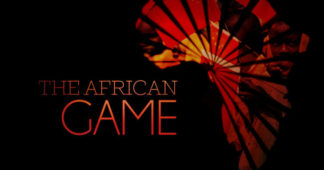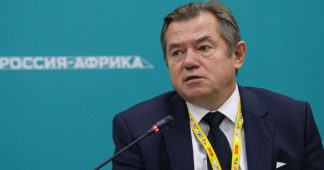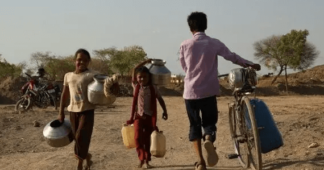Earlier this week, South African president Cyril Ramaphosa confirmed that Moscow and Kiev had agreed to receive a mission of African leaders with their peace initiative for the Russian-Ukrainian conflict. Russian Foreign Minister Sergey Lavrov later confirmed that the African mission was planning to visit Russia in mid-June or early July.
The mission of African countries to Russia and Ukraine to end the ongoing conflict between the two neighbors is “very encouraging and unexpected,” given that African nations have not previously directly addressed conflicts outside the continent, Natalia Piskunova, an Associate Professor of African Studies and Political Science at Lomonosov Moscow State University, told Sputnik on Friday.
Piskunova said the proposal of six African countries, namely Zambia, Senegal, South Africa, Egypt, Congo and Uganda, is the first of its kind since Africa’s independence and represents evidence of the continent’s increased international presence.
“This initiative is a long-awaited development in world politics, which finally fixes the completely new role of Africa in international relations.The fact that six African states have come together with a single peace initiative and offered their mediation efforts demonstrates the very good experience and potential of these states in terms of peacemaking,” the political scientist said.
According to Piskunova, as nations with both favorable and negative conflict experiences, African states understand the toll such disputes can take on individuals and economies. The current initiative shows that these countries are willing to apply their diplomatic experiences beyond the continent’s borders to resolve conflict and promote peace.
She opined that most African nations are no longer viewed as “underdeveloped” or “obsolete” due to the restructuring of their economies, resolution of political risks, and increasing international influence. As such, African countries are now capable of being significant political and economic players, shaping global policies.
“This initiative is a long-awaited phenomenon in world politics that definitively marks a completely new role for Africa in international relations,” Piskunova said. “Today’s Africa represents states with both positive and negative experiences of conflict. Most of the conflicts experienced by African countries are conflicts that have grown out of the problems and contradictions of once united countries.”
She added, the extremely difficult experiences of Africa “now gives it the opportunity to offer different solutions to conflicts. African countries know all the peculiarities of the development of conflicts between neighboring states, as well as the peculiarities of the reconciliation process, even in the most acute conflicts.”
The scholar cited a number of examples of past conflicts between neighboring nations on the African continent, including the conflict in Rwanda, the conflict between Ethiopia and Eritrea, and the conflict in Mozambique.
“Above all, African leaders know that the first step in the process of resolving any conflict is to create a ‘communication bridge’ between the parties. It is this experience of African countries that is now extremely important and most in demand,” Professor Piskunova.
Commenting on the fact that most African countries have remained neutral since the beginning of the conflict in Ukraine, despite pressure from Western powers, Piskunova described this neutrality as “the result of years of experience in conflict resolution, a professional approach to the problem, and the great interest of the countries in stabilizing the situation.”
“Africa’s neutrality gives it the greatest opportunity to become a ‘new peacemaker’ in the system of modern international relations. Moreover, this neutrality is advantageous for Africa as the beneficiary of the first part of the ‘grain deal’,” she said.
According to the professor, Africa’s neutral stance in this situation is easy to understand. The continent is equidistant from the conflict zone and has stable relations with both direct and indirect parties to the conflict. In addition, African nations do not run the risk of becoming directly involved in the war zone.
As a result, there is great potential for Africa to engage in various peacemaking activities, such as unofficial mediation, shuttle diplomacy, and formal proposals for peace talks.
While South Africa, which is leading this peace initiative, is a member of BRICS along with China, which has also proposed a peace plan for resolving the Russian-Ukrainian conflict, Piskunova stated that it is premature to speak of BRICS as a mediator in the conflict, since only two members of the five-state bloc have independently proposed peace plans.
“Moreover, one of the parties to the conflict is a member of BRICS, so it is difficult to distinguish this structure as a mediator in the conflict so far. Now it is more appropriate to consider the Chinese and African plans and initiatives separately,” Piskunova concluded.
Earlier this week, South African President Cyril Ramaphosa said he had spoken to Russian President Vladimir Putin and Ukrainian President Volodymyr Zelensky and presented them with a peace initiative for the settlement of the Ukrainian conflict on behalf of Zambia, Senegal, Congo, Uganda, Egypt and South Africa.
On Thursday, during a joint press conference with visiting Ugandan Foreign Minister Jeje Odongo, Russian Foreign Minister Sergey Lavrov said that a mission of African leaders with a peace initiative on Ukraine plans to visit Russia in mid-June or early July.
Recently, the founder of the Brazzaville Foundation and the initiator of the peace mission, Jean-Yves Ollivier, told Sputnik that the initiative is the first of the kind to be accepted both by Russia and Ukraine. Moreover, he noted that negotiations along the lines of the African mission will be held without preconditions and that any media reports to the contrary, including an article in the magazine Jeune Afrique, are “unreliable.”
“I saw some article on the news that there are pre-conditions. They are not correct, there are no pre-conditions. I can assure you. Of course as I said, and Jeune Afrique mentioned… we hope not to [come] back empty-handed,” said Ollivier. “We really sincerely hope we will get some results out of these visits, if not we wouldn’t do it.”










